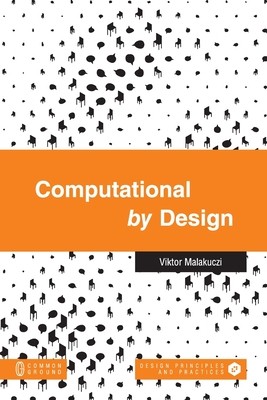
- We will send in 10–14 business days.
- Author: Viktor Malakuczi
- Publisher: Common Ground Research Networks
- ISBN-10: 1863351221
- ISBN-13: 9781863351225
- Format: 15.6 x 23.4 x 1.1 cm, minkšti viršeliai
- Language: English
- SAVE -10% with code: EXTRA
Reviews
Description
The contemporary material culture--everyday objects surrounding us--is dominated by mass
manufactured products, but Digital Fabrication together with Computational Design (also called
generative or parametric design) promises a shift towards substantially personalizable products, in a
relatively cost-effective way. Considering this shift an opportunity for designers, the book argues that in
order to consolidate the practice of developing personalizable products, designers need to change their
focus from convergent to divergent user needs and desires, leaving room for the creative contributions
of the users in the design of their objects, thus converting them from simple users to (computational)
co-designers. Albeit such "on-demand" products are still rare in the everyday environment, there
are numerous appreciable examples, which led to the recognition of six recurring personalization
principles--or user motivations--of both mechanical and cognitive nature. Based on these, the book
proposes a design approach the systematic replicating the observed principles on any product typology,
with the support of a new design tool: a canvas that guides the designer's thinking towards product
concepts to which personalization is essential. The proposed tool might help designers to spread
personalisable design across many product categories, thus creating new business opportunities
coherently with the recent development of the Industry 4.0 paradigm. On the long term, this might
promote a more active role of the user in shaping the material culture, both through improving
functionality and through new ways of creating meaning.
EXTRA 10 % discount with code: EXTRA
The promotion ends in 21d.15:02:30
The discount code is valid when purchasing from 10 €. Discounts do not stack.
- Author: Viktor Malakuczi
- Publisher: Common Ground Research Networks
- ISBN-10: 1863351221
- ISBN-13: 9781863351225
- Format: 15.6 x 23.4 x 1.1 cm, minkšti viršeliai
- Language: English English
The contemporary material culture--everyday objects surrounding us--is dominated by mass
manufactured products, but Digital Fabrication together with Computational Design (also called
generative or parametric design) promises a shift towards substantially personalizable products, in a
relatively cost-effective way. Considering this shift an opportunity for designers, the book argues that in
order to consolidate the practice of developing personalizable products, designers need to change their
focus from convergent to divergent user needs and desires, leaving room for the creative contributions
of the users in the design of their objects, thus converting them from simple users to (computational)
co-designers. Albeit such "on-demand" products are still rare in the everyday environment, there
are numerous appreciable examples, which led to the recognition of six recurring personalization
principles--or user motivations--of both mechanical and cognitive nature. Based on these, the book
proposes a design approach the systematic replicating the observed principles on any product typology,
with the support of a new design tool: a canvas that guides the designer's thinking towards product
concepts to which personalization is essential. The proposed tool might help designers to spread
personalisable design across many product categories, thus creating new business opportunities
coherently with the recent development of the Industry 4.0 paradigm. On the long term, this might
promote a more active role of the user in shaping the material culture, both through improving
functionality and through new ways of creating meaning.


Reviews